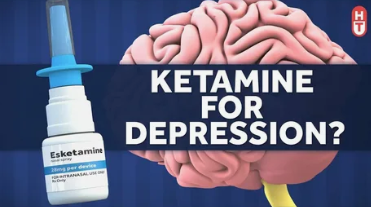Ketamine Therapy for Depression: A Revolutionary Approach to Mental Health

Depression affects millions of people worldwide, often leaving them struggling to find effective relief through traditional treatments. While antidepressants and psychotherapy remain the standard approaches, many individuals continue to experience persistent symptoms despite these interventions. In recent years, ketamine therapy for depression has emerged as a groundbreaking option, offering hope for those who have not found success with conventional treatments.
Understanding Ketamine Therapy
Ketamine is a medication that was originally developed as an anesthetic in the 1960s. It has a long history of safe use in medical settings. More recently, research has revealed its potential to alleviate symptoms of depression rapidly, even in individuals with treatment-resistant depression. Unlike traditional antidepressants, which may take weeks to produce noticeable effects, ketamine therapy can provide relief in as little as a few hours or days.
Ketamine works by targeting the brain’s glutamate system. Glutamate is the most abundant neurotransmitter in the brain and plays a key role in mood regulation, learning, and memory. By modulating glutamate activity, ketamine promotes synaptogenesis—the formation of new connections between neurons—which is believed to help reverse the neural damage often associated with chronic depression.
How Ketamine Therapy Works
There are several methods of administering ketamine for depression:
- Intravenous (IV) Infusion: The most common form of ketamine therapy, IV infusions are administered in a clinical setting under medical supervision. Patients typically receive a series of treatments over a few weeks, with sessions lasting about 40 minutes to an hour.
- Intranasal Sprays: Esketamine, a derivative of ketamine, has been approved by the FDA for treatment-resistant depression in the form of a nasal spray. This method allows patients to self-administer the medication under supervision in a clinic.
- Oral and Sublingual Forms: Though less common and with lower bioavailability, oral or sublingual ketamine can be prescribed in some cases. These methods are still under research and are typically used when other delivery methods are not feasible.
During ketamine therapy sessions, patients may experience mild dissociation—a temporary feeling of detachment from the body or surroundings. This is generally short-lived and considered part of the therapeutic process. Medical professionals closely monitor patients for safety and comfort throughout the treatment.
Benefits of Ketamine Therapy for Depression
Ketamine therapy offers several advantages over traditional depression treatments:
- Rapid Relief: One of the most remarkable aspects of ketamine therapy is its ability to provide quick symptom relief, often within hours. This can be life-changing for individuals experiencing severe depression or suicidal thoughts.
- Effectiveness in Treatment-Resistant Depression: Many patients who do not respond to antidepressants or psychotherapy may find relief with ketamine. Studies show that a significant portion of treatment-resistant patients experience meaningful improvements.
- Neuroplasticity Enhancement: Ketamine promotes neural growth and connectivity, potentially repairing the brain circuits affected by depression. This may contribute to longer-lasting improvements in mood and cognitive function.
- Reduction in Suicidal Ideation: Research indicates that ketamine therapy can rapidly reduce suicidal thoughts, making it an important intervention in crisis situations.
Considerations and Risks
While ketamine therapy shows promise, it is not suitable for everyone, and potential risks must be carefully considered. Common side effects may include dizziness, nausea, increased blood pressure, and transient perceptual changes. Rarely, patients may experience more serious effects such as persistent dissociation or urinary tract complications with long-term use.
Ketamine therapy should always be administered under the supervision of a qualified medical professional. Patients with a history of certain medical conditions, such as heart disease or uncontrolled hypertension, may require additional screening. Additionally, ketamine is classified as a controlled substance due to its potential for misuse, so strict protocols are in place to ensure safe use.
The Treatment Process
A typical ketamine therapy program for depression begins with a comprehensive evaluation. Medical professionals assess the patient’s mental and physical health, review prior treatments, and determine whether ketamine therapy is appropriate.
For IV infusion therapy, patients usually receive 6–12 sessions over a few weeks. Each session involves careful monitoring of vital signs and mental status. Patients are encouraged to reflect on their thoughts and feelings during treatment, which can enhance the therapeutic effect. After the initial series, some individuals may require maintenance treatments to sustain benefits.
For intranasal esketamine therapy, the process often includes an initial titration phase to determine the optimal dose. Patients administer the medication under supervision in a clinic and are monitored for a period afterward to ensure safety. Maintenance treatments may continue at intervals determined by the healthcare provider.
Complementary Therapies
Ketamine therapy is often most effective when combined with other forms of mental health support. Psychotherapy, lifestyle interventions, and ongoing medical care can help consolidate the improvements achieved through ketamine treatment. Cognitive-behavioral therapy (CBT), mindfulness practices, and stress management strategies can enhance resilience and support long-term mental well-being.
Research and Evidence
Numerous studies support the use of ketamine therapy for depression. Clinical trials have demonstrated that both ketamine and esketamine can produce rapid, robust antidepressant effects, even in individuals with chronic or severe depression. Ongoing research continues to explore optimal dosing strategies, long-term safety, and potential applications for other mental health conditions such as anxiety disorders, PTSD, and bipolar depression.
Conclusion
Ketamine therapy for depression represents a transformative approach in mental health care. For individuals struggling with treatment-resistant depression or seeking rapid symptom relief, ketamine offers a scientifically backed option that can significantly improve quality of life. While it is not a standalone cure and requires careful medical supervision, its rapid and profound effects have made it a beacon of hope for many patients.
If you or a loved one are considering ketamine therapy for depression, consulting with a licensed healthcare provider is essential to determine suitability and create a personalized treatment plan. With proper guidance, ketamine therapy can be a powerful tool on the journey to recovery, offering relief, renewed hope, and a brighter outlook on life.






